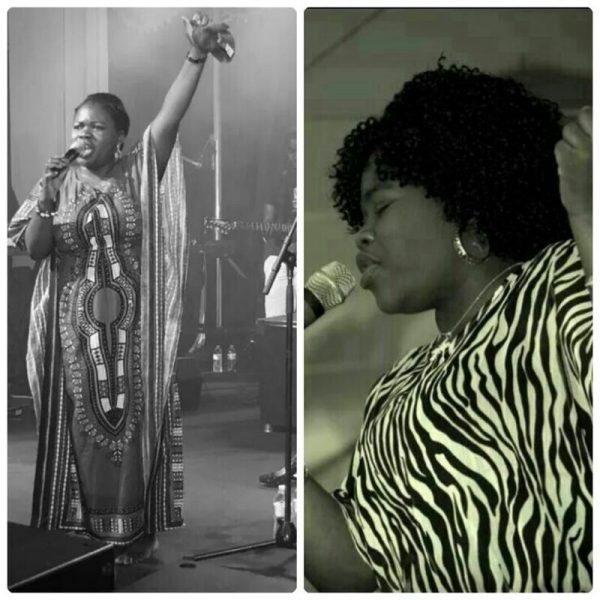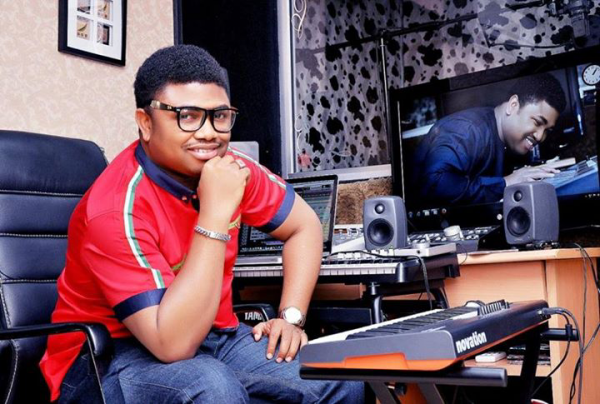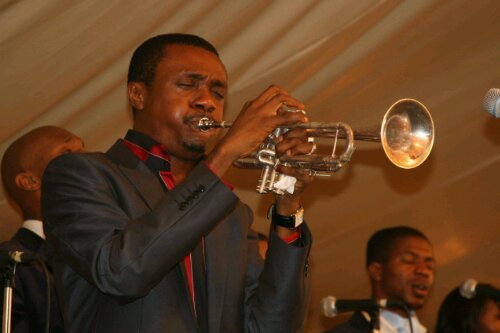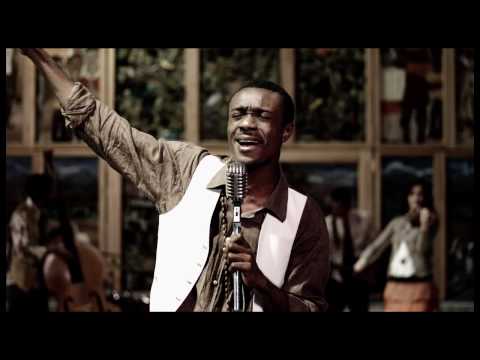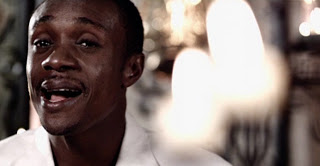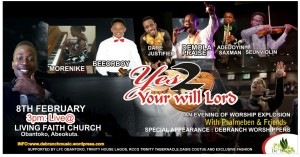Should Churches Pay Musicians? Mike Abdul, Wole Oni and Various Pastors Share Their Views
post by debranch worshippers
Report By Priscilla, Canada — Hello great people, this week is a special edition and I am so blessed and deeply humbled that these anointed men and woman of God, celebrities and distinguished persons created a space for me in their busy schedules to answer my call.
My choice of guests is a mix of great people attached or linked to gospel music. I’m grateful for the bold and valid responses I got from them even though I got some declines from other guests that felt the topic was too sensitive! But..its okay.
Moving on..The objective of the discussion is to clear the issue on: The place of the Musician in the church; Why some are perceived to be rebellious to their Home Church/Pastors; and if Musicians should be Paid! I do not discredit any church or any individual for doing otherwise.
I have Mike Abdul, Pastor Francis Madojemu, Papa Deolu, Blessing Alli, Anonymous Pastor and Wole Oni. Please enjoy.
MIKE ABDUL
He is one of the four powerful voices of the famous and respected Midnight Crew {MNC} known for the widespread song IGWE! Songwriter and producer, the pioneer of the record label- Spaghetti Records.
His music has taken him round the globe and he has made several appearances on videos, featured in singles, and conducted different music workshops.
His latest request for fans to submit their twitter handle to him is quite cool and humbling if you ask me. Here is what he told me…
HIS VIEWS:
Thank you for having me.
The place of the musician in church is vital and needs no ‘wracking’ the head over as worship is to-a-large-extent music driven.
Good music is directly proportional to good congregational worship experience.
Music is the musician’s trade; he definitely should be paid when he renders his service except he chooses to render his service for free.
Whether the musician should be paid is not something to think about, why would anyone not pay for service rendered? Free service is the choice of the labourer, anyone who is forced to render free service is under slavery in the hands of a wicked person or system!
When a musician requires a change of system from the hands of a master who refuses to pay, that musician will simply be perceived as rebellious. SHIKENA!
My reaction: Funny, blunt and straight to the point!
————————————————————————————————————-
PASTOR FRANCIS MADOJEMU
Pastor Francis E Madojemu is a highly respected Teacher; an anointed Preacher, Coordinator of The Bridge Network Ibadan; an Architect,businessman, consultant for ReCLAIM Culture as well as the CEO of NuSTREAMS Concepts.
He is a multi-gifted motivational speaker as well as an educator whose principles on Success and Wealth fly in the face of conventional wisdom. He was the Pastor of The Redeemed Christian Church of God, Jesus Embassy Ibadan till September 2006.
He is the author of Roadmap and Rich Pastor Poor Pastor. A Spiritual father to many music artistes of the gospel. I’ve known him for so long and I love listening to his teachings. An approachable father who responded to my call even with his tight schedule.
If you’ve ever been to Ibadan and did not visit The Bridge Network trust me, you were and still wrong! Here are his thoughts.
HIS THOUGHTS
About the issue of musicians, I think we may be taking a simplistic approach to the challenges they face as well as the Churches they serve in. We must realize that one of the greatest challenges we face is poverty and it drives most people into places they don’t want to go normally line corruption, stealing even armed robbery.
Musicians need to be looked after it’s their profession, the question is how?
By limiting ourselves to simply putting a burden on Churches for payment and as you know many churches struggle even to balance their budget we have shut down other doors.
If you have ever read Robert Kiyosaki’s Rich Dad, a Poor Dad where he tells the story as a boy and was given a job in a store by his ‘Rich Dad’ together with Rich Dads actual son. It’s was only when he agreed to work for free did he see possibilities.
“..A job is only a short-term solution to a long-term problem. Most people have only one problem in mind, and its short term. It’s the bills at the end of the month, the Tar Baby. Money now runs their lives. Or should I say the fear and ignorance about money.
So they do as their parents did, get up every day and go work for money. Not having the time to say, is there another way?’ Their emotions now control their thinking, not their heads.”
Keep using your brain, work for free, and soon your mind will show you ways of making money far beyond what I could ever pay you. You will see things that other people never see.
Opportunities right in front of their noses. Most people never see these opportunities because they’re looking for money and security, so that’s all they get. The moment you see one opportunity, I you will see them for the rest of your life.”
Back to the Musicians now, there are other ways to make money for example teaching people to play instruments for a fee, producing their own music for sale, becoming sales representatives for the areas if their specialization or the equipment they love for a Commission…… I could go on and on and I am sure if we put our minds to it other opportunities would become feasible.
However the churches where these musicians are serving should support and create platforms that empower them. Transportation costs and other considerations can be looked at but again I must say these are just simplistic at the moment.
I think both sides need to listen to each other’s needs and aspirations and work together to bridge the gap and find a solution.
It’s a problem that can be solved when we look at thinks from a win-win scenario instead of us against them approach as we are in thus together.
[My reaction: Hummmn! I have to read it again. Too deep.]—————————————————————————————————————-
BLESSING ALLI:
An anointed powerful vocalist and analyst who is rapidly spreading her wings in different states of the USA and frequents Nigeria often to minister. She sings with a passion and a mission. The devil runs when she mounts any stage! {Check YouTube} Trust me on that one also a member of FECA NETWORK. A very close ally of mine and her views are always respected and valued. Currently working on her EP album
HER VIEWS
The Musicians in church are divided into two major categories.
The Singers and The Psalmists or Instrumentalists, However both categories operate under the Ministry of the tribe of “Levi” otherwise known as The Carriers of God’s presence. God specifically told Moses to separate a tribe that will minister unto Him.
This is where the Musician’s role comes into place, Music is a vital act of worship that the scripture always points out, so the Place of the Musician is to understand the mind of God and communicate it accurately through Music.
The Musician through the direction of the Spirit ushers the people into God’s presence by Ministering unto God Skillfully and Spiritually.
In a typical Nigerian setting, if a musician comes late or does not stay in the choir post during sermon, the person is perceived as being rebellious, in the western world there are other points that can be noted such as appearance, background check, violent nature etc. can make musicians be perceived as rebellious.
First of all, we need to define “Rebellion” in this area before we can tackle why “Musicians” are usually the only targets for rebellion rather than an usher that chews gum during service or a sanctuary keeper that sleeps during the sermon.
On Musicians getting paid, Hummmm! This is usually the sensitive area. Ok, there is the Act and Art of Music especially in Ministry. Some Musicians are into this field full time of which they get their source of living from, while others do it for the love and passion they have while getting paid from outside jobs.
So should Musicians be paid? Absolutely Yes, but it is still dependent on what category they fall in “Full Time or For the Passion…
If you read Numbers 8: 1-23 You will get more insights to this view that the Music Ministers or Levites were instructed by God not to work but fully render service/ Minister to God in the Tent, (I am not saying the music ministers that are working should quit their Jobs unless you are led directly by God)
Another thing we need to consider is we are modelling the “Then” dispensation with “Now” dispensation of which a lot will have to be considered before giving a final response?
Because time will not necessary permit me to shed more light on the Scripture, I suggest you read the book of Numbers for more understanding. God bless.
[My reaction: She always leaves me searching the scriptures.]————————————————————————————————————–
ANONYMOUS PASTOR
He is a respected, popular preacher and a profound teacher in one of the popular Churches in Lagos Nigeria; He breaks down the scriptures that even a child understands!
I was simply touched and humbled when he called me on the phone to say his views on this issue. Pastor, I know you are reading this even though you opted to be anonymous. I want you to know that I have not gotten over your call.
HIS VIEWS
I will rather call them Music ministers who I see as adding to the corporate anointing of the Church. Being remunerated should be a function of services rendered. I don’t think it’s right for me to say “don’t go out for a Gig” when am not compensating them.
They are perceived to be rebellious when they minister in church as well as go out to perform. They are humans with families and responsibilities as well as bills.
Though some churches are not financially able, they should always appreciate, encourage, and motivate ministers for them to be kept in Church.
[My reaction: Very true sir. Hitting the Nail!]—————————————————————
ADEOLU OGUNNUBI (PAPA DEE}
Adeolu Ogunnubi fondly called ‘Papa Dee’ is the President of PARACLETOS MINISTERIES INTL (PMI) An HELPs Ministry’ positioned to preserve the NEXT Generation of young people for marital fidelity, leadership capacity development & Community development initiatives…the organization powers the Heart-to-Heart (H2H) monthly forum since 1998.
He also served as the National president of FECA Nigeria as well as the National Coordinator of the FECA FORUM OF SENIOR MEMBERS (Fecafosm) Nigeria. He is called of God to preserve the next generation of leaders.
He is presently a Director in Digits Sounds Solution Ltd, ANTLERKORP NIG LTD and the MD of PAO2 Global services. Happily married to Oreofe and blessed with kids. A mentor and a role model to many. He is an Icon I respect a lot whose home is always opened to all.
Whenever he sets his mind on something he makes sure he sees it to the end, a phenomenal and blunt speaker who cares a lot. He spanks and embraces! (Laughs) I love hearing his views on virtually every topic. Here is why..
HIS VIEWS
Great!
Music is a very powerful tool all throughout the ages in impacting society…
Music enhances our worship life so profoundly that it cannot be over looked…
Musicians or in this case Gospel musicians are therefore extremely very important in the growth of any local assembly…
Musicians help to make God’s praise more glorious…Ps 66:2
Now because they see themselves as very important and because a lot of skills, grace, charisma and talents are involved in the making of a good musician…it is easy to allow that get into one’s head because of the fame, glamor and recognition that comes with it…
Most gospel ministers who cannot handle this well…eventually get rebellious whenever they perceive their worth isn’t being appreciated in their churches…that’s why we see a lot of them moving and changing churches often.. Looking for a church that will pay them more or appreciate them better…This in my opinion is one of the reasons they are perceived as being rebellious to authorities in Churches.
On the issue of paying musicians…. I think it should be primarily based on the financial capacity of the local Assembly…Gospel musicians who are on full time…obviously would need to be paid enough to make them at least comfortable…
But I disagree with Gospel musicians who insist and are motivated by financial rewards alone, before they serve God with their God given talent…
The first motivation is in using your skill to serve God and bring glory to His name and whatever financial incentives that come naturally with it should be accepted with thanksgiving without complaining or grumbling…
Money must never be our motivation as believers…Pleasing Him should be the first thing on our mind…and Gospel musicians are no exceptions…
Finally… Churches should also continue to appreciate their musicians and encourage them to continue the good work by making them as comfortable as they can afford.
[My reaction: Word! Might be hard but very true.]—————————————————————
WOLE ONI
An accomplished producer, hit maker. Music lover, synthesizer, programmer, songwriter, arranger and sound engineer. The Multi-International Award Winning Music Producer/Jazz Pianist and CEO/Founder Instinct Productions/WOMP who was humble enough to reply all my incessant BB PINGS {laughs} despite his busy schedule, He was able to share his thoughts on this issue. {Thanks big bro.}
HIS THOUGHTS
First, I will start by explaining who a church musician is: A church musician is a person who sustain the church by providing musical services, especially as a performer of music who plays an instrument.
Also a musician (or instrumentalist) is a person who is talented in making music or performing music creatively, or one who composes, conducts, or performs music.
Musician can specialize in any musical style, and some musicians play in a variety of different styles. Examples of a musician’s possible skills include performing, conducting, singing, composing, arranging and the orchestration of music.
Musicians act as a carrier for a particular message or suggestion.
As I meet and talk with church musicians from all backgrounds, our conversations inevitably turn to some of the difficulties of working in the church. And we usually agree that the root of those problems is less of a musical one than one that is spiritual.
I have tried to zero in on what the spiritual difficulties and challenges are for musicians who work in the church.
The church musician must first understand that our work is also a form of worship.
Secondly, we should develop the mental discipline to concentrate on our job per time, and listen to the sermon during service.
Our major role is to set the tone for an atmosphere of Praise and Worship in God’s presence each time which is probably one of the most spiritually challenging jobs anyone can have.
· Church musicians should be appreciated or encouraged which boils down to being paid or not. However they should not be dependent on the church for survival. They should be creative, versatile and diverse in many ways that money can flow to them.
· Being over-ambitious when you feel you can attain a height without passing through normal procedures can brew up rebellion.
· When there is a mutual agreement and balance between the church musicians and the church itself regarding the values and their views being respected in contributing to the value of the church progress there won’t be any cause for rebellion.
Being Paid is relative and should be an individual’s decision, if your spiritual life is strong and your faith in God is such that you absolutely depend on His sustenance then being paid in a church should be a personal decision.
[My reaction: Point taken. ]Thanks to all my special guests for clearing the air and for honoring my call. God bless you.
To my readers, I hope you’ve learnt something today. Do watch out for another edition on Thursday – The story of a talented music artist that was abused and………… Stay tuned to Praiseworld radio.
Written and reported by:
Priscilla
@PriscillaPWR
- 04/02/2015
- Comments 0
- Read more


